Uploaded by Rafael Popper 2123 days ago Year of publication: 2016 Number of pages: 158 File's language: English Views: 901
The main objectives of the ‘State-of-art of sustainable innovation’ work package (WP2) in the CASI project are (1) to position sustainable innovation (SI) within the framework of the 5th European Union Societal Challenge on Climate Action, Environment, Resource Efficiency and Raw Materials (SC5) of the European Commission’s Horizon 2020 Framework Programme for Research and Innovation (H2020); and (2) to set the theoretical foundations for the assessment and management of sustainable innovation. This report summarises the work undertaken by the CASI partners to achieve these objectives. In so doing, it describes the key findings of a major stocktaking exercise that required the mapping of SI initiatives, and presents some implications that these findings may have for future research and innovation (R&I) policies for sustainability.
The study draws on the exploration and identification of more than 500 sustainable innovation initiatives. The identification required a combined focus on social, economic and environmental dimensions, as well as relevance to one or more of the priorities areas of SC5. Over 200 cases were further analysed and mapped, based on five selection criteria: public participation and mobilisation; sustainability and cross-sectoral linkages; multi-dimensional transformations; deployment and diffusion; and novelty.
To position sustainable innovation, the authors have conducted, first, a comprehensive review of H2020’s key areas in SC5, including the description of SI practical examples; and, second, an assessment of the selected cases in relation to the type of innovation, their impacts, systemic sustainability, roles and common features. These tasks led to the working definition of sustainable innovation as ‘any incremental or radical change in the social, service, product, governance, organisational, system and marketing landscape that leads to positive environmental, economic and social transformations without compromising the needs, welfare and wellbeing of current and future generations’. (See also CASI’s Sustainable Innovation Conceptual Framework report by Popper et al. (2016).)
To lay the foundations for the assessment and management of sustainable innovation, the CASI project’s State-of-art of sustainable innovation activities involved conducting an inductive analysis of 500+ cases, which led to the identification of four SI management dimensions, 10 SI management key aspects and 50 critical factors; then, based on these factors, a set of common considerations or recommendations for sustainable innovation managers were suggested using technological, economic, political, social, environmental and ethical perspectives. Both the critical factors and common considerations provide a practical frame that guides the conception, design and future development of the methodological framework for the assessment and management of sustainable innovation (CASI-F).
In sum, the report illustrates how bottom-up approaches can be utilised to build both theoretical and practical structures for sustainable innovation. In general terms, its findings will hopefully be seen as a valuable contribution to improving sustainable innovation governance, at a time when evidence-based methodologies are increasingly sought as a way of legitimising European policy action.
 State-of-art of sustainable innovation
State-of-art of sustainable innovation Sustainable Innovation Policy Advice
Sustainable Innovation Policy Advice CASI-F: Common Framework for the Assessment and Management of Sustainable Innovation
CASI-F: Common Framework for the Assessment and Management of Sustainable Innovation Your passport to the future!
Your passport to the future! The technology horizon: Preliminary review on technologies impacting the future health and social care workforce
The technology horizon: Preliminary review on technologies impacting the future health and social care workforce CfWI Future workforce matters - Issue 4
CfWI Future workforce matters - Issue 4 CfWI Future workforce matters - Issue 4
CfWI Future workforce matters - Issue 4 Science Foundation Ireland (SFI) Agenda 2020
Science Foundation Ireland (SFI) Agenda 2020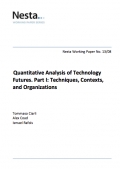 Quantitative Analysis of Technology Futures. Part I: Techniques, Contexts, and Organizations
Quantitative Analysis of Technology Futures. Part I: Techniques, Contexts, and Organizations myForesight: Malaysia's National Foresight Magazine (2nd Edition)
myForesight: Malaysia's National Foresight Magazine (2nd Edition) CfWI Future workforce matters - Issue 3
CfWI Future workforce matters - Issue 3 CfWI Future workforce matters - Issue 2
CfWI Future workforce matters - Issue 2 CfWI Future workforce matters - Issue 1
CfWI Future workforce matters - Issue 1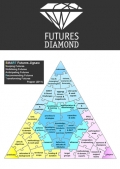 New Horizon Scanning Concepts, Practices and Systems
New Horizon Scanning Concepts, Practices and Systems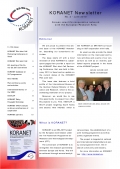 KORANET Policy Foresight Workshop in Vienna/Austria
KORANET Policy Foresight Workshop in Vienna/Austria The Use of Strategic Intelligence and Horizon Scanning
The Use of Strategic Intelligence and Horizon Scanning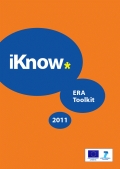 iKnow ERA Toolkit (2011)
iKnow ERA Toolkit (2011) iKnow National Studies (2011)
iKnow National Studies (2011) iKnow Policy Alerts (2011)
iKnow Policy Alerts (2011) iKnow Interviews (2011)
iKnow Interviews (2011) iKnow Conference - Brussels, 27-28 October 2011
iKnow Conference - Brussels, 27-28 October 2011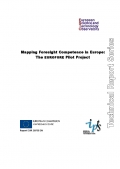 Mapping Foresight Competence in Europe: The EUROFORE Pilot Project
Mapping Foresight Competence in Europe: The EUROFORE Pilot Project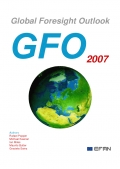 GFO 2007 - Global Foresight Outlook
GFO 2007 - Global Foresight Outlook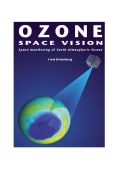 OZONE: SPACE VISION
OZONE: SPACE VISION
iKNOW has been featured in the media and several research projects:
DIE ZEIT (Germany), Financial Times (Germany), El Heraldo (Colombia), Prospective Foresight Network (France), Nationalencyklopedin (Sweden), EFP - European Foresight Platform (EC), EULAKS - European Union & Latin America Knowledge Society (EC), CfWI - Centre for Workforce Intellience (UK), INFU - Innovation Futures (EC), Towards A Future Internet (EC), dstl - Defence S&T Laboratory (UK), EFSA - European Food Safety Agency (EU), Malaysia Foresight Programme (Malaysia), Bulletins Electroniques more...
